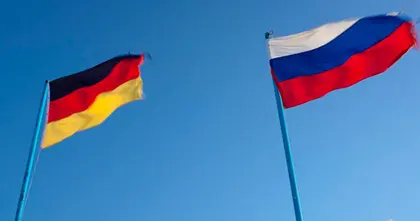Russian spymasters paid bribes to German politicians to buy anti-Ukraine statements and pro-Kremlin voting in the European Parliament, a major Prague news platform reported on Wednesday, citing intelligence compiled by the Czech national domestic intelligence agency Bezpečnostní informační služby (BIS).
The major daily Denik N newspaper said that Czech counterintelligence operatives had uncovered a ring of Kremlin agents and local operatives handing over cash to anti-government politicians from at least six European Union member states, in exchange for votes and pro-Russia influencing in the European Parliament.
JOIN US ON TELEGRAM
Follow our coverage of the war on the @Kyivpost_official.
The Russian hybrid war operation to undermine European resistance to the Kremlin’s invasion of Ukraine also directed funds to a major pro-Russian news website manufacturing content praising Moscow and faking negative news about Ukraine in “one of the largest exposed Russian influence operations in recent years,” the article said.
In exchange for the illicit bank transfers and cash handovers from Kremlin agents, EU politicians taking the money made speeches in the European parliament containing anti-Ukraine rhetoric, voted in legislatures in support of Russian foreign policy goals, and published statements opposing European support of Ukraine and calling for European concessions to Russia, the article said.
The Denik N article cited a Czech Foreign Ministry source as stating the Kremlin payments “targeted” politicians from Belgium, France, Germany, Hungary, the Netherlands and Poland. The report did not identify bribe recipients by name, nor did it offer additional evidence supporting allegations that European Union elected officials received or are receiving Russian bribes.

Russia Starts Mobile Bomb Shelter Production
The report singled out only one European political group by name – Germany’s far-right political party Alternative for Germany (AfD) – as containing officials receiving Kremlin money illicitly.
According to a March 27 report in the German daily Der Spiegel, the money was either handed over in cash at personal meetings in Prague or transferred using cryptocurrency.
AfD senior official Maximilian Krah told Spiegel he had given two interviews to Voice of Europe but “of course had not received any money for this, neither for myself or the party.”
In Germany’s most recent federal election, in 2021, the AfD lost ground and fell to become the fifth-largest party in the Bundestag. The AfD party platform opposes all German military support to Ukraine and calls for the immediate cancellation of Western economic sanctions on Russia.
The explosive Czech newspaper report of clandestine Russian influence-buying within European democratic institutions coincided with a Wednesday statement by Prime Minister Peter Fiala identifying a Czech news platform called Voice of Europe as financed and operated by Kremlin spies with the mission to undermine European support to Ukrainian defense against Russian invasion.
Citing intelligence from the Czech Security Information Service (BIS), Fiala said the Kremlin financed and is continuing to finance the Prague-based Voice of Europe news site, whose content is almost totally devoted to criticizing Ukraine, praising Russia, and arguing European support to Ukraine is dangerous and wasteful.
At a Tuesday press conference, with BIS head Michal Koudelka standing next to him, President Petr Pavel told reporters BIS operators and analysts have identified Russia as the Czech Republic’s biggest security threat.
Voice of Europe (VoE) content following the Wednesday Denik N article and Fiala’s public charges ignored allegations it was a Kremlin-run hybrid war weapon.
Ukraine-related stories published by the platform in the March 27-28 news cycle included the Polish-Ukrainian spat over grain exports, US opposition to increased Parisian support to Ukraine, Spanish refusal to send troops to Ukraine, promotion of a Slovak politician opposing military aid to Ukraine, EU hesitance to transfer seized Russian assets to Ukraine, Polish opposition to Ukrainian EU membership, and the Ukrainian nationality of a ship captain possibly responsible for a container ship crash into a suspension bridge in Maryland.
Content not concerning Ukraine over the 24-hour window covered failing US infrastructure, 100 percent “foreigner” responsibility for “serious sexual assaults” in Germany, exploitative nurse recruitment by “wealthy nations,” increasing Spanish inflation, minimal German economic growth, mass die-off of butterflies in Holland, EU Commission “censorship” of social media, US Navy “powerlessness” against Houthi attacks in the Red Sea, the failure of US policy in the Israel-Hamas war, farmer street protests in Brussels and Green Party defections to the AfD. Kyiv Post could not confirm all VoE content was accurate.
You can also highlight the text and press Ctrl + Enter






